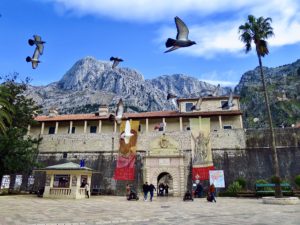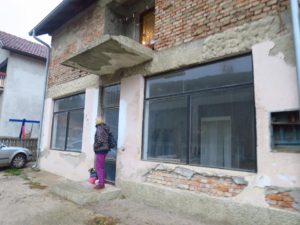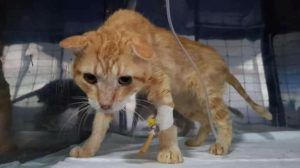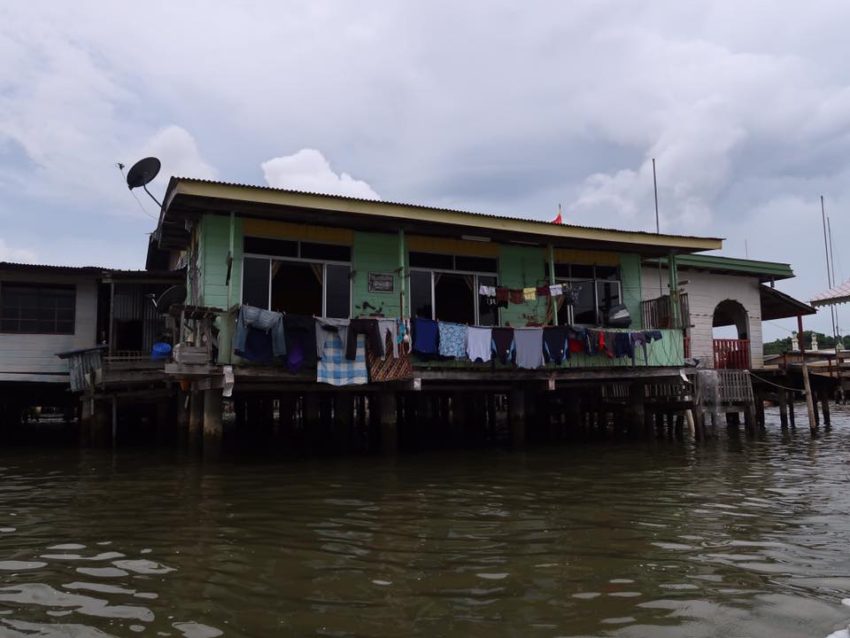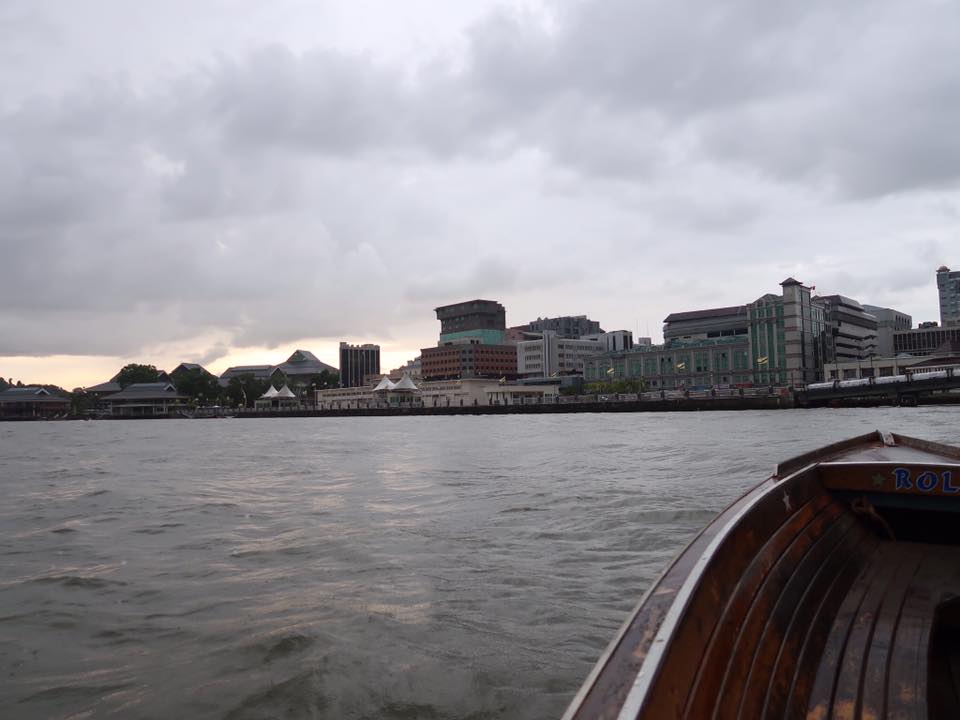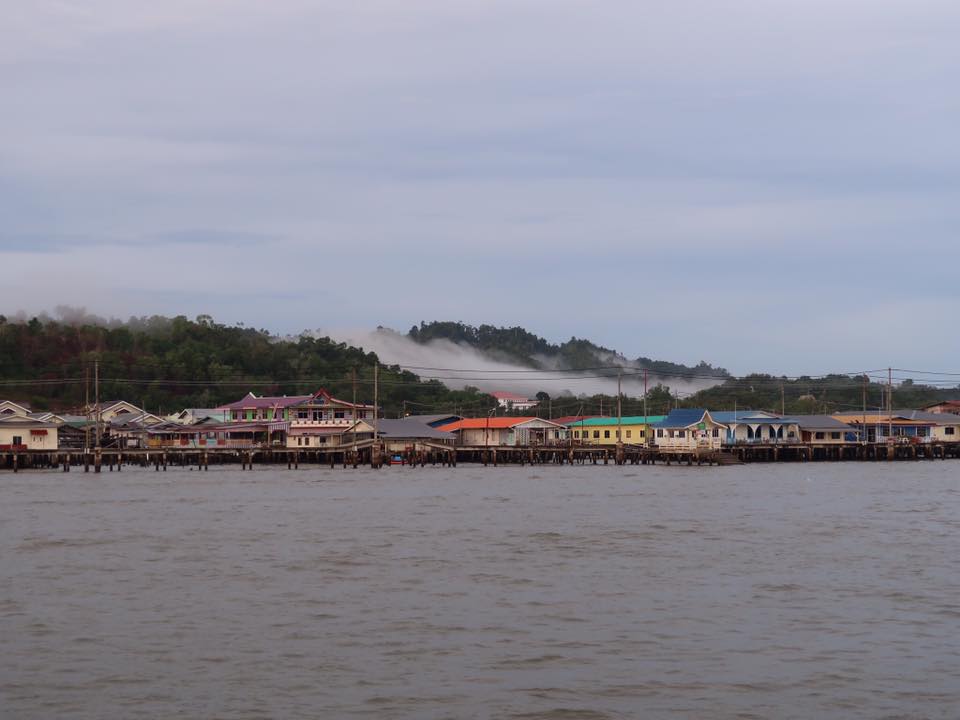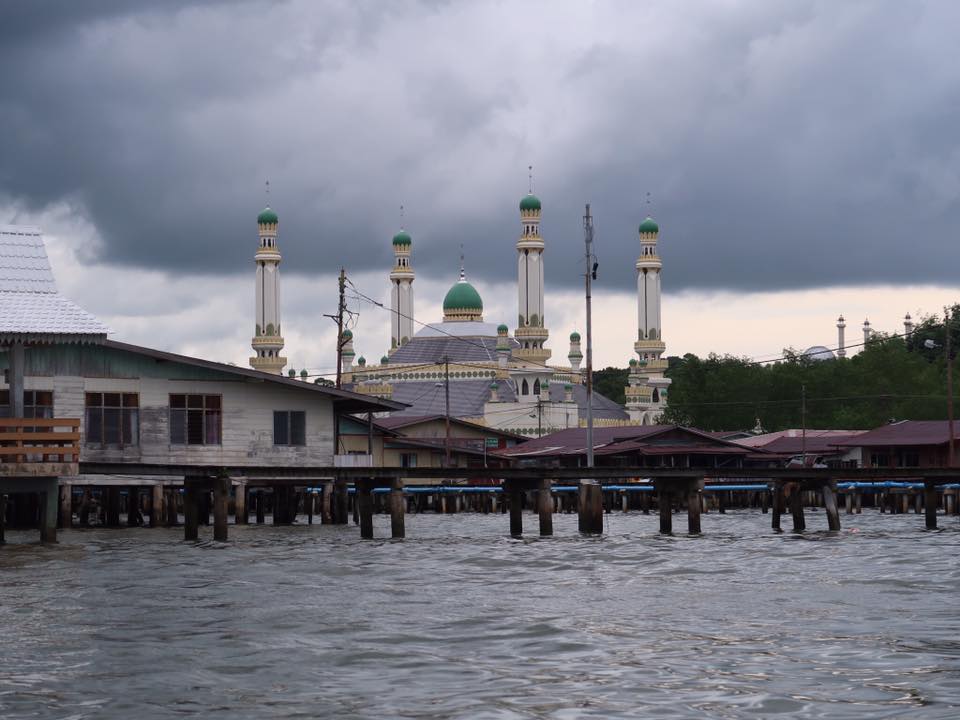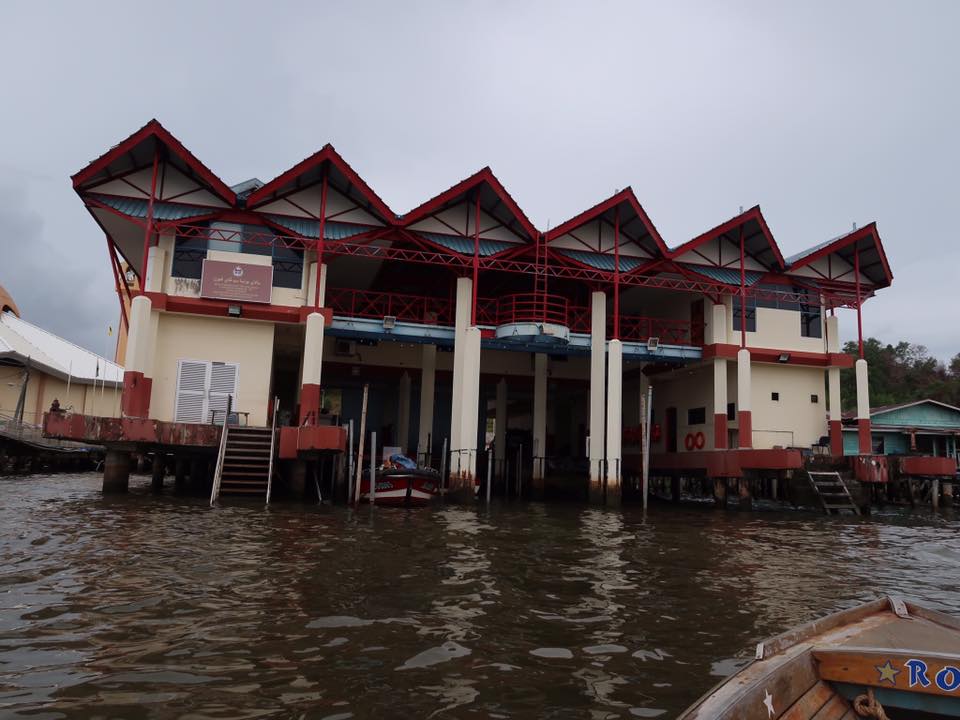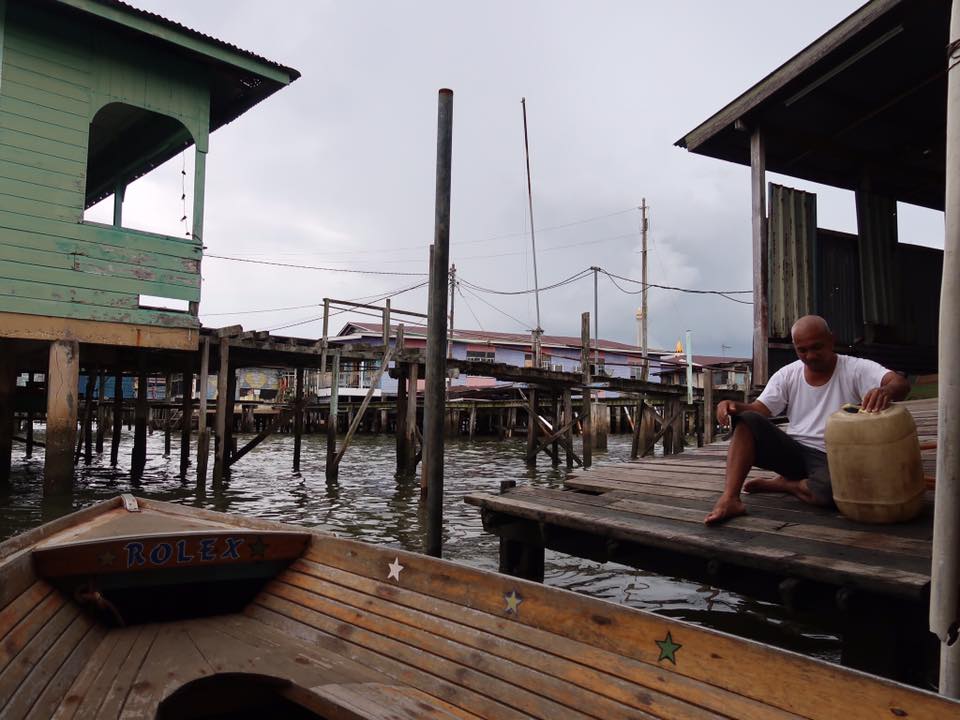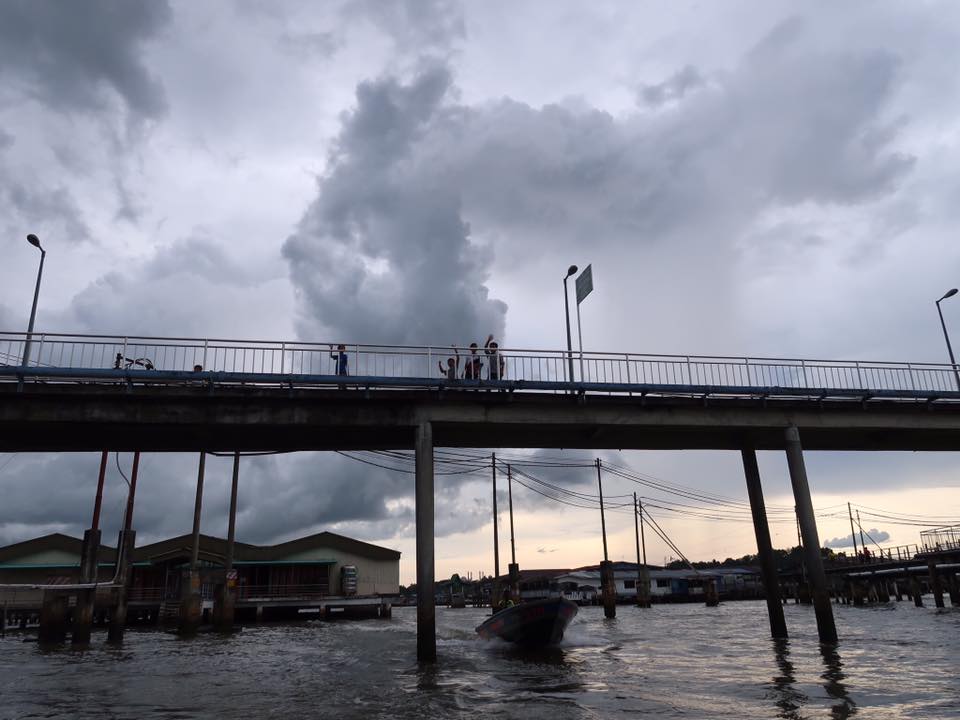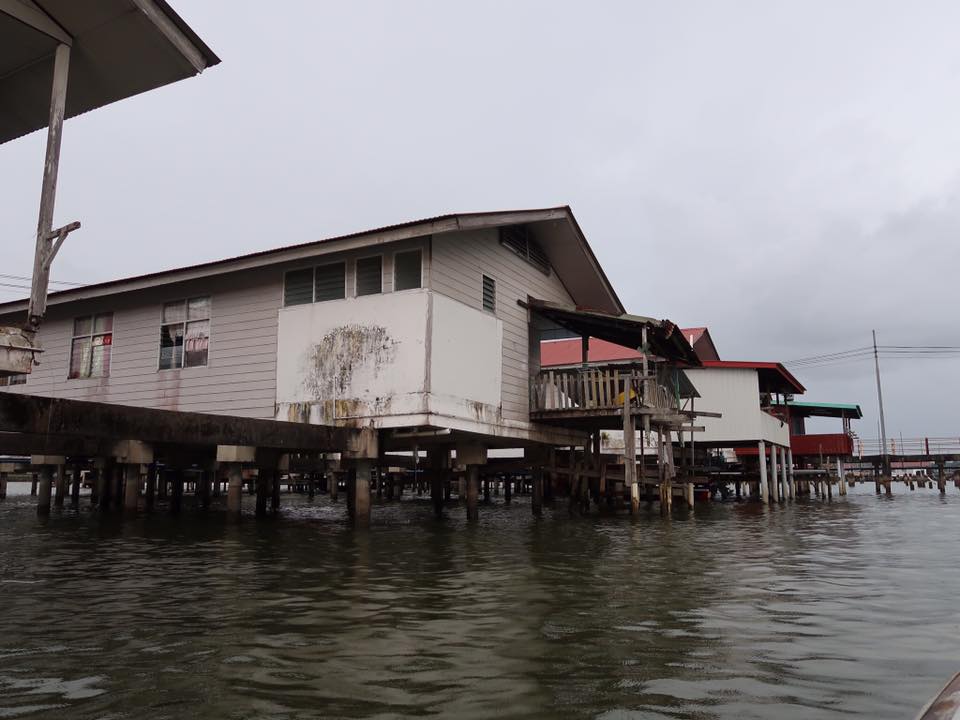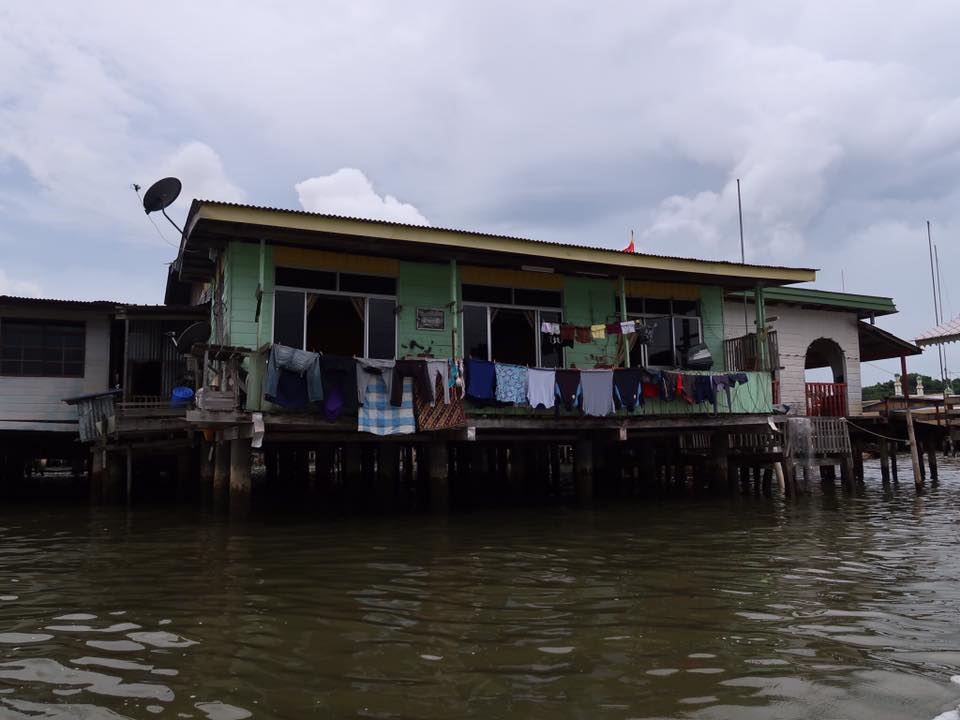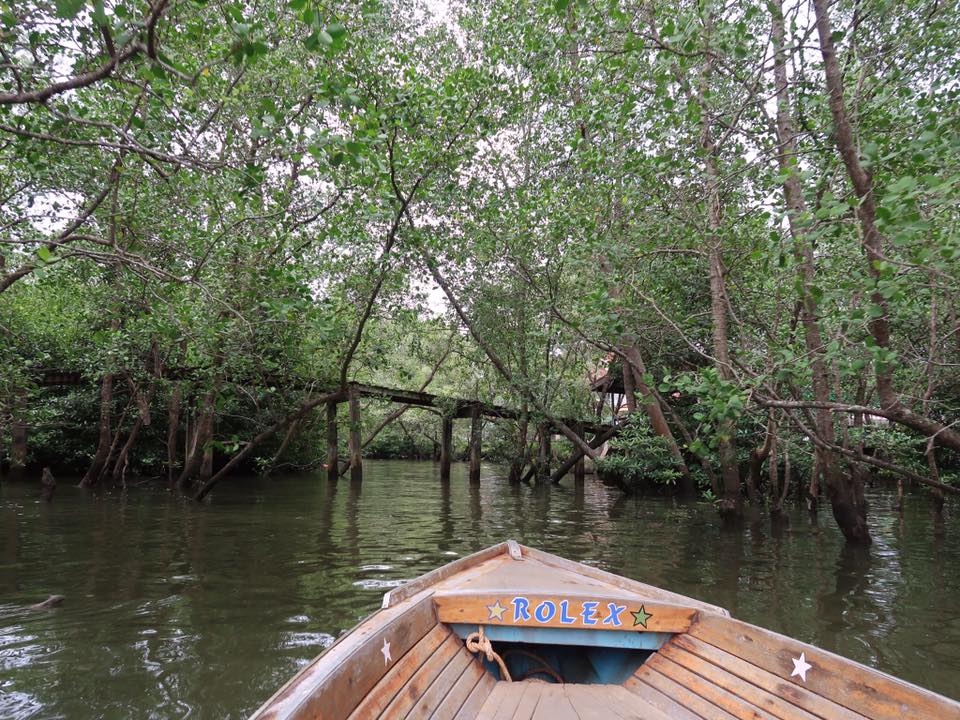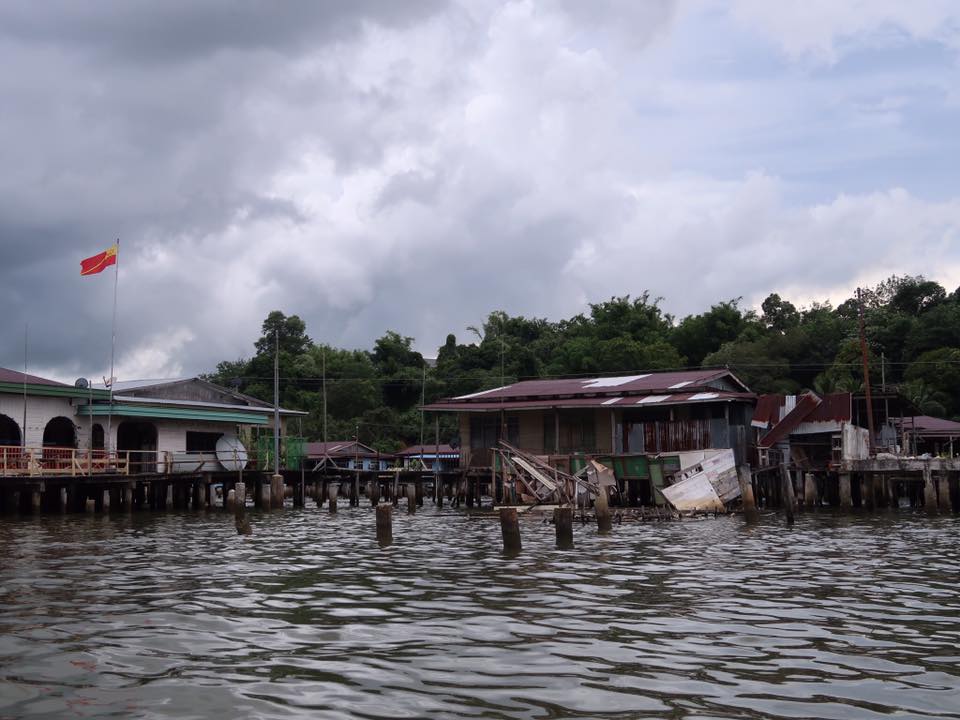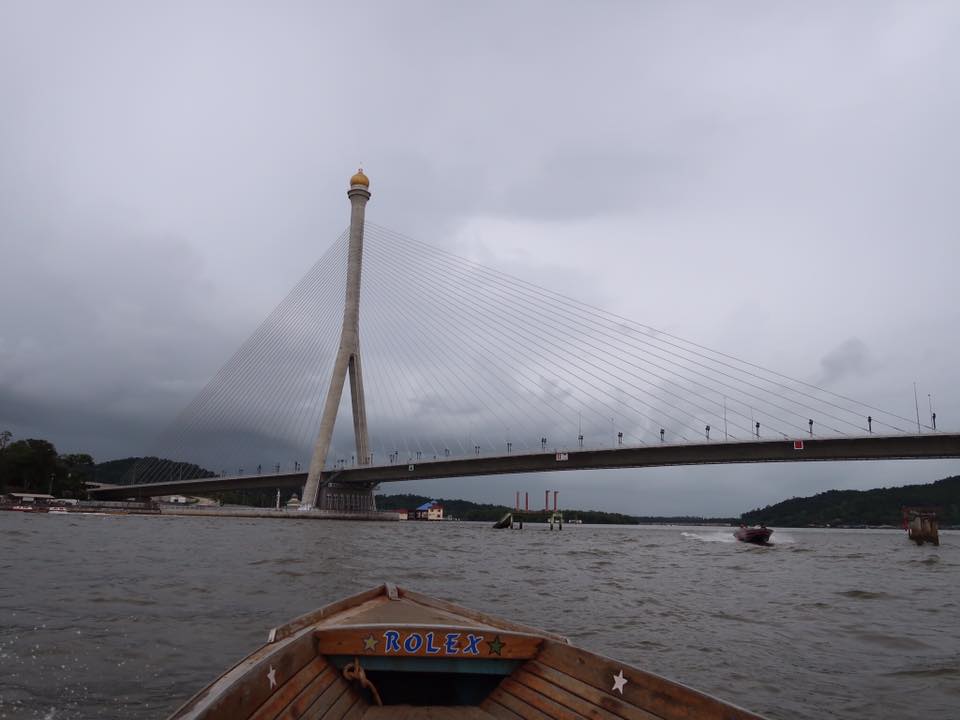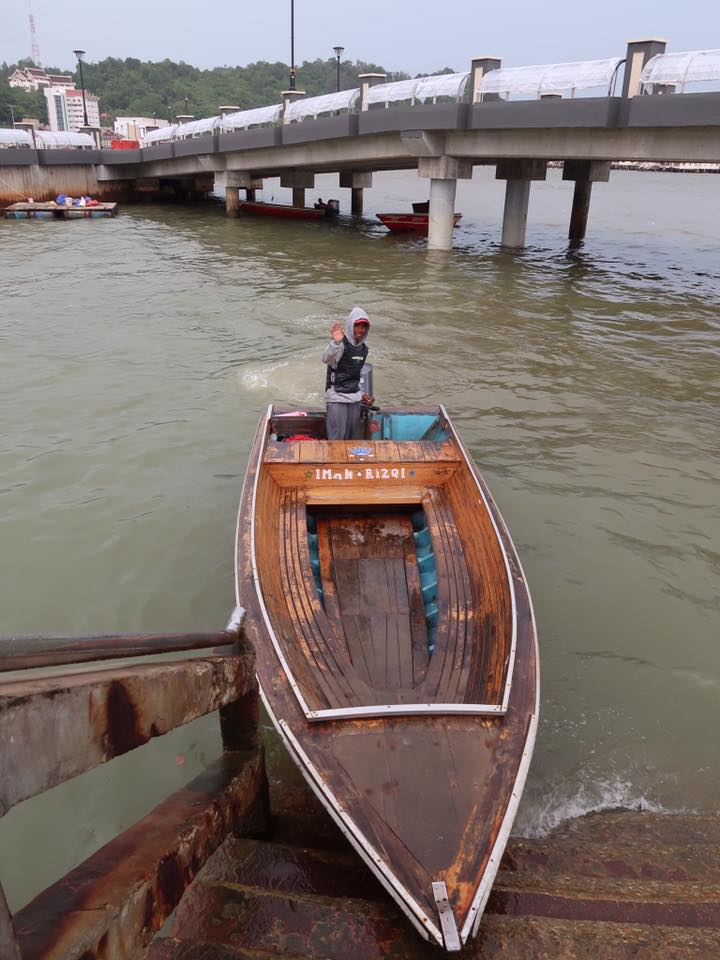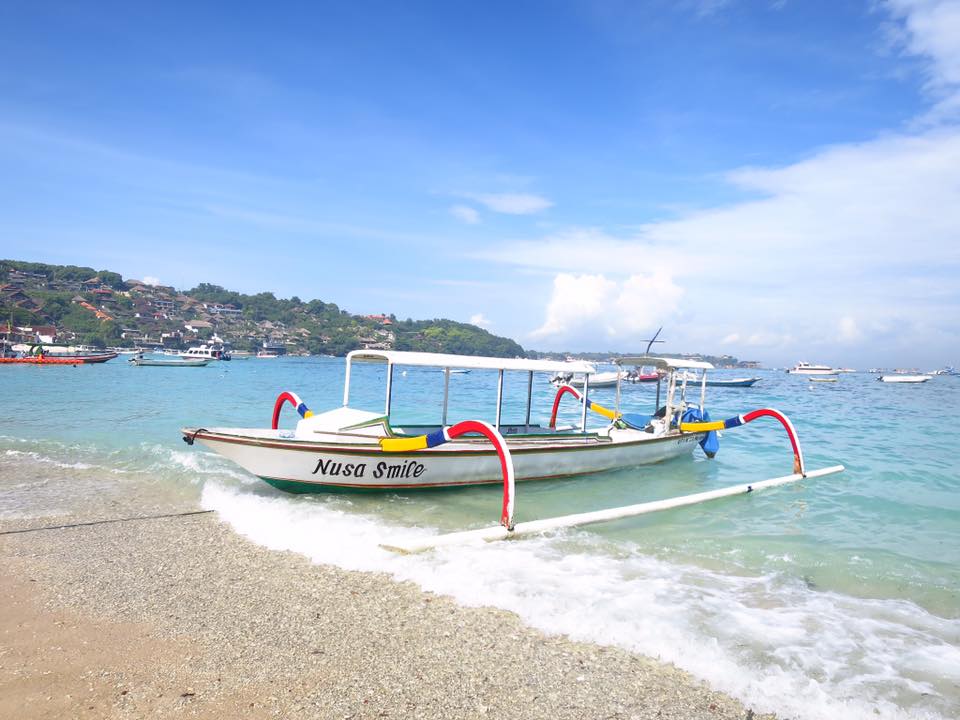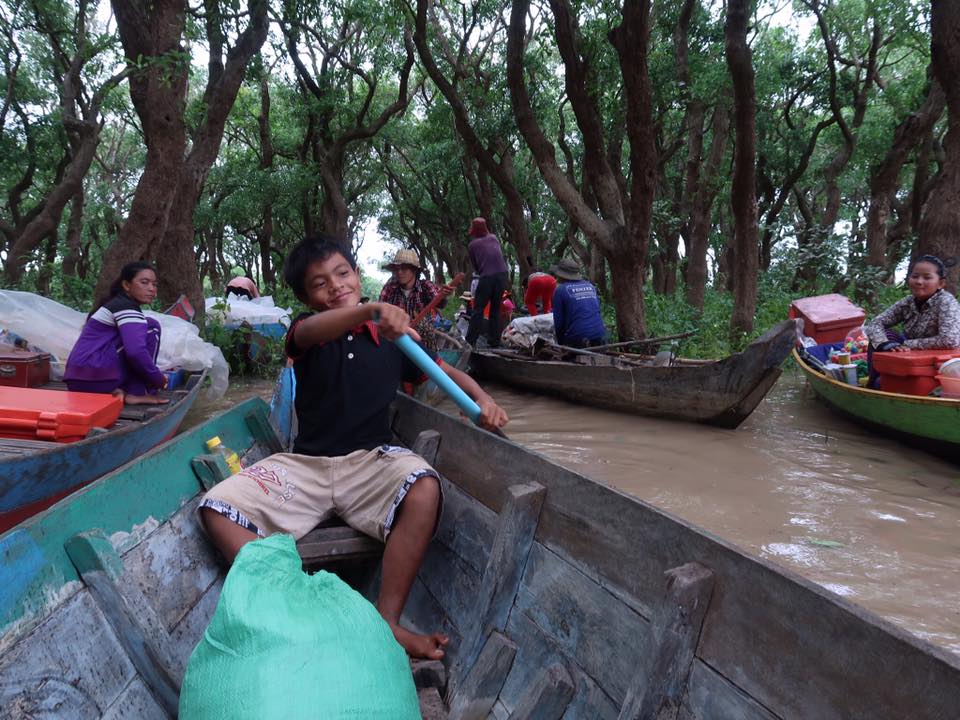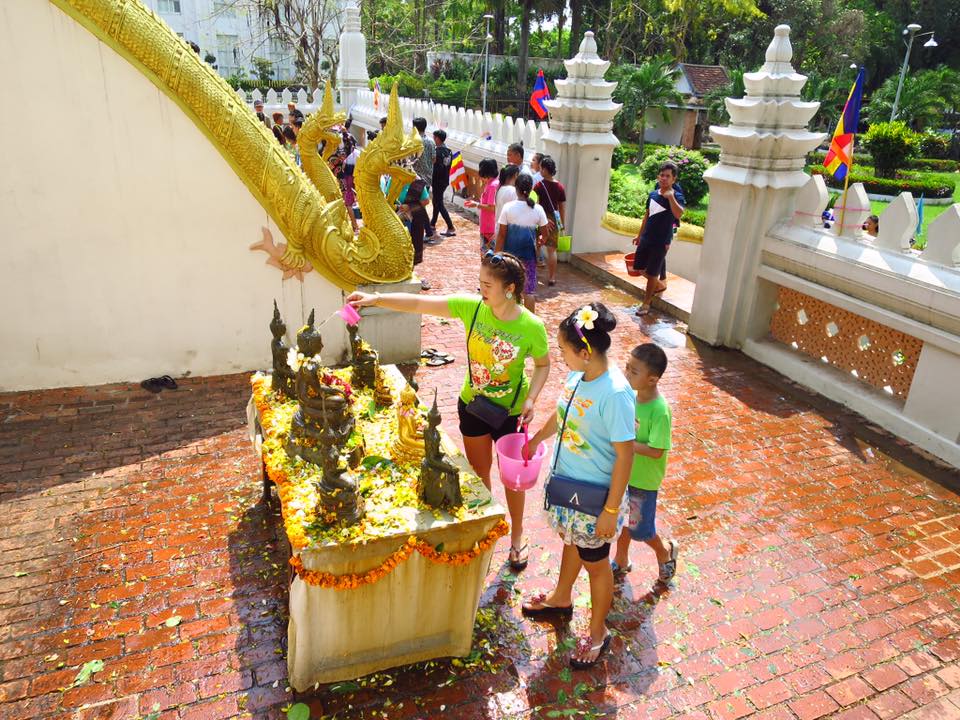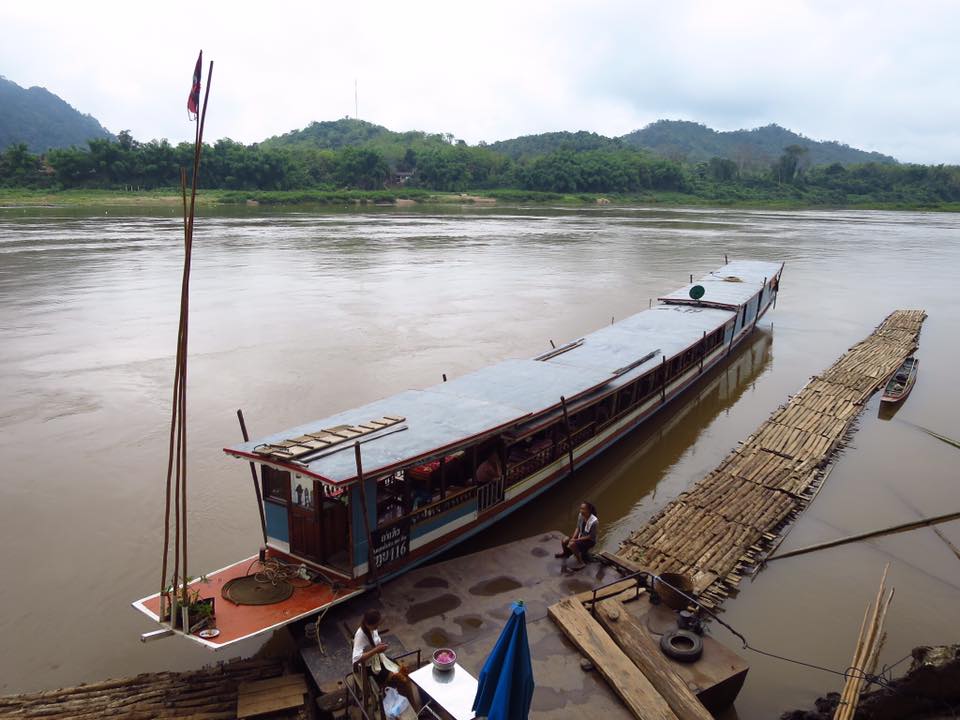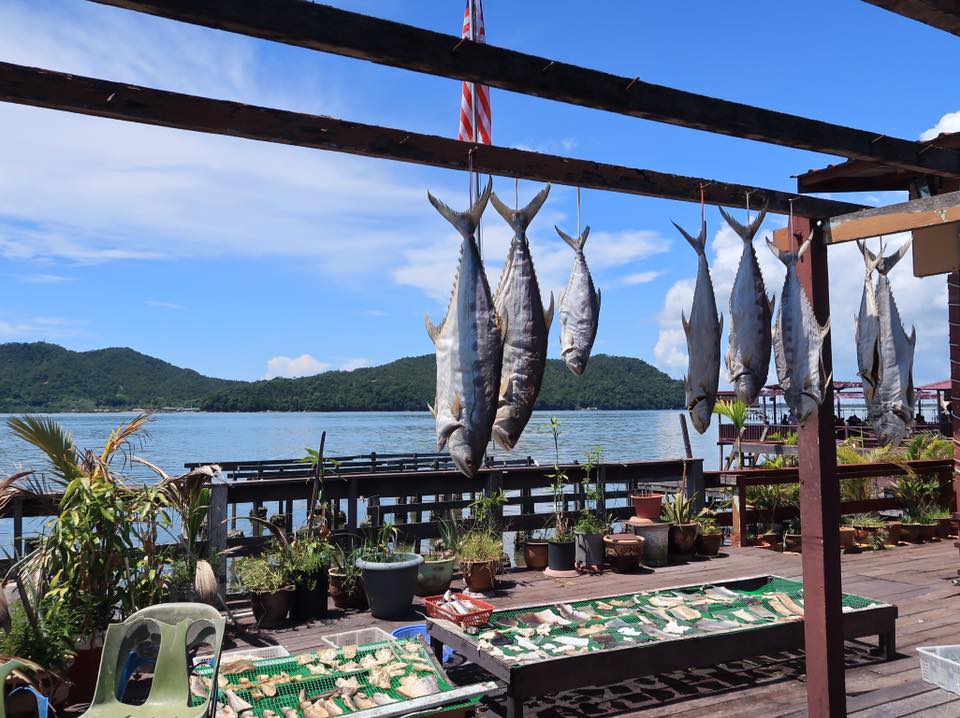Kampong Ayer may be one of the few attractions in Brunei, but this 600-year-old “Water Village” is the world’s largest settlement on water. Currently, there are about 13,000 people who live in these houses that are on stilts. It’s only B$1.00 (USD $0.73) per person to take a water taxi to cross the Brunei River. When we got onto the boat, the guy offered a one-hour boat ride for B$15.00 (USD $10.95) and mouthed off a few places we would see. Since we hadn’t seen much of city and the guy was practically begging, we said OK.
Salleh spoke good English and pointed out different things to us; namely, the Sultan’s Royal Palace, the Sultan sister’s palace, a few mosques, the water village’s only high school, a few of the vilłage’s ten primary schools, the fire department, the pipes that bring drinking water into the village, the broken-down stilts of a house that collapsed into the water just a few months ago, and the months-old new bridge. He said, “Today, many tourists.” Not long before us, he had shown some Chinese tourists around. Then, he pulled out his phone to show us a photo of the Filipino passengers he had in the morning.
Salleh told us he needed to get gas, so we went to one of the houses where his friend sold him a big jug of petrol. His friend was eager to chat with Kenric. As with everyone who started a conversation with us in Brunei, the first question was, “Where are you from?” He was a nice guy. I cringed when his neighbor threw a paper cup out the window. He saw my face and said the children do that all the time. Salleh paid him and I wondered about petrol prices in this oil-rich country.
When we got back to the big river, Salleh told us he hoped we wouldn’t mind that he needed to drop off some food for his children at home. It had started drizzling. I was beginning to feel like we were taken for a paid ride while Salleh ran his afternoon errands. “I have eleven children.” “Eleven?!” “Yeah, six girls and five boys.” He proceeded to tell us the sex and age of his children, “The first one, girl, 27,……..boy, nine. Two years ago, my wife died.”
“How did she die?” My inner voice answered, “She had no life.” “Darah tinggi.” If I had to guess what contributed to the premature death of a woman with eleven children, high blood pressure would be one of my top guesses. His three youngest children live with his older children who have moved away. The three at home are all teenagers.
Salleh is in his fifties. Seeing him struggle to climb the ladder to his home makes me wonder how many more years he can do that. When we were about to drive away, he went back up to his house and brought back some treats. He said they were from Hari Raya (the recent celebration at the end of a month-long fasting during Ramadan). We had some frozen brownie bites, they were good. Salleh was a fireman for eight years when he lived on land. Then, the family moved to the water village and he started running his water taxi business.
Earlier, when he told us he had to send his youngest children to live with his older ones, I asked if he intends to look for a new wife. He said no because it’s difficult for someone his age to find a partner. It made me sad to hear someone who’s only in his 50s say that. Then again, I don’t have to agonize over whether or not to talk to Salleh about family planning. Since the rain got heavier, we decided to just go back to the ferry terminal instead of exploring the water village on foot. I was sad the hour went by so quickly because I really enjoyed the company of this Mad Salleh!
